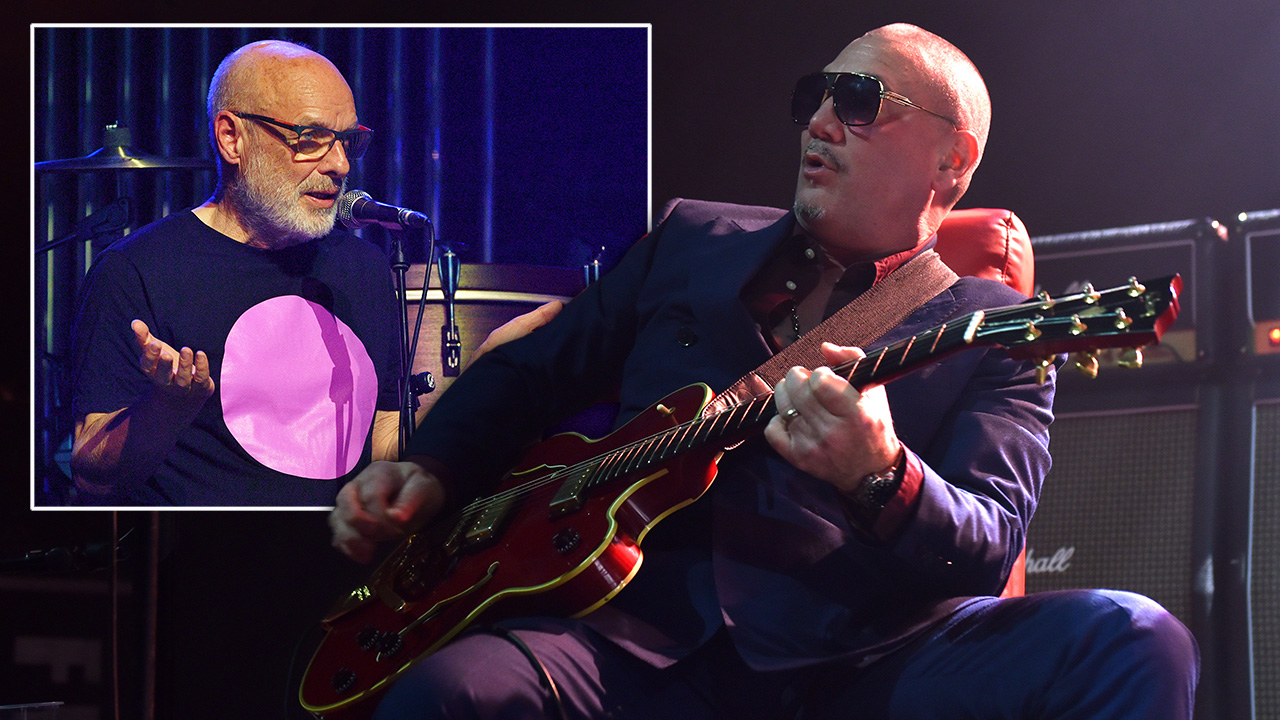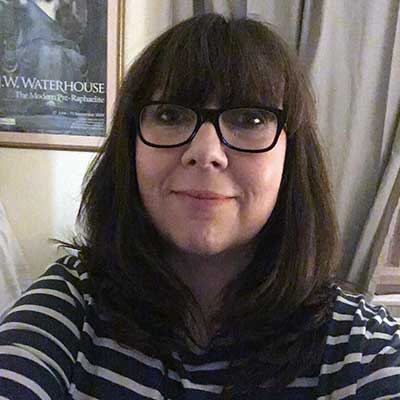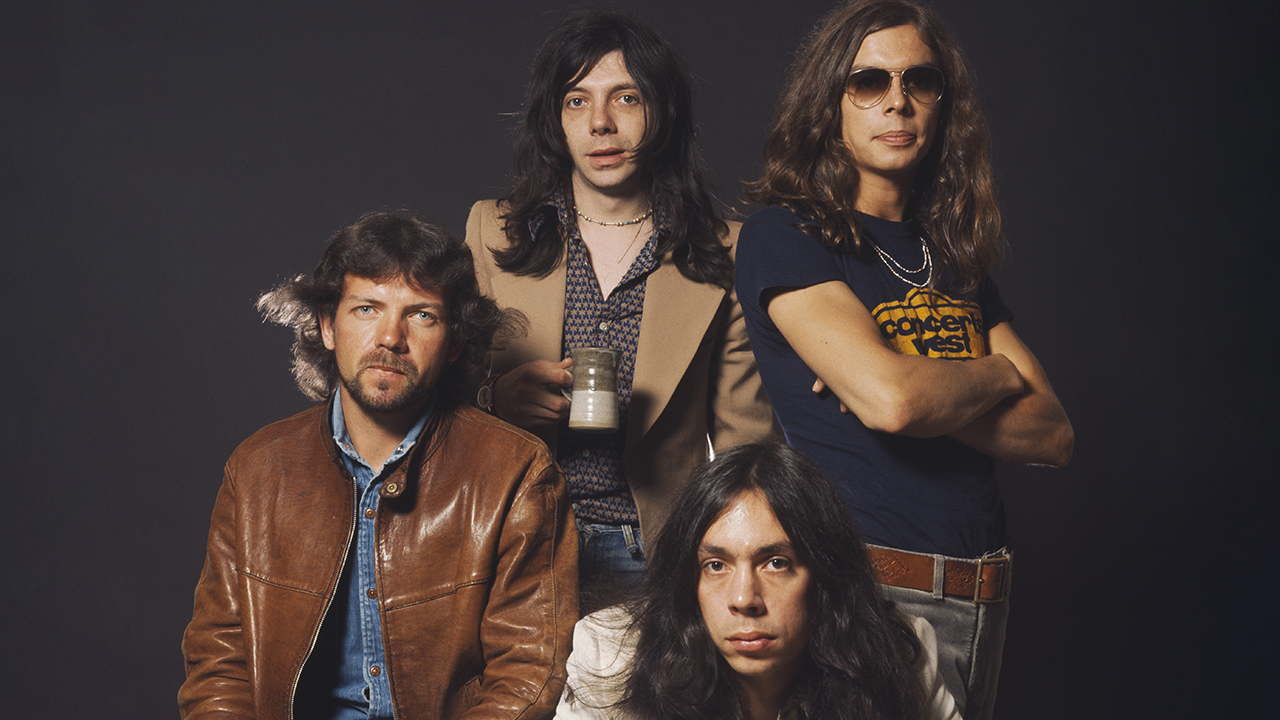“Brian Eno has a very simple view on music - the more we clutter it up with things the more foggy the goodness gets”: Huey Morgan’s prog education
Former Fun Lovin’ Criminals frontman traces a line from Nat King Cole and Frank SInatra to Talk Talk, Marillion, Jethro Tull and others

Radio presenter and DJ Huey Morgan’s wide-ranging record collection contains disco, funk, hip-hop and much more. But in 2012 the former Fun Lovin’ Criminals frontman told Prog that he could connect most of it to musicians including Brian Eno, Ian Anderson and Steve Rothery.
“A lot of times you’ll listen to music and go ‘That’s proggy’, but it’s not necessarily Rick Wakeman proggy, where you’ve got nine keyboards and you’re trying to do all these different kinds of scales and eight-minute solos. He’d play forever if the electricity would keep up. Within different genres of music there’s progressive or prog.
“The first prog record that caught my ear was South California Purples by Chicago. I remember it cos it was long, and going a lot of places; I liked the horns. I got my music education from listening to the radio a lot, especially the New York City station WPLJ. I couldn’t tell the difference between genres at that time cos I just liked what I liked. That would come from my mom’s record collection, which wasn’t one type of thing. Ray Charles, Don Ho, Nat King Cole – I never thought of that as really different to other music until I grew up a bit.
“I would say Nat King Cole was prog for bringing black music to white folk in a way they could deal with it – ditto Elvis! And I hail Frank Sinatra for trying new things too. This box set [The Sinatra Touch] covers so much music, and the track Wave shows him experimenting with his voice, really trying to sing differently. People like Hector Levoe, Willy Colon doing salsa, they created a genre of music that mixed old Puerto-Rican folk music and afro-jazz. That was prog, like Santana!
“When I was 10, 11 years old my mother got me The Encyclopedia Of Rock. That was the bathroom book, and well-thumbed. I read it cover to cover and it impressed upon me that music is constantly evolving. And if you love music, there’s no shortage. These days you have YouTube and so on to discover music but when I was a kid you had to go out and crate-dig. Free Being Records, Second Avenue, St Marks, was a great place to go. Anyone who works in a record store can see a kid who’s into certain types of music and put ’em onto things they’d like.
“I knew about punk music and I wasn’t bothered but the first Clash record was in there, and the guy said, ‘You should buy this record.’ I said, ‘But these guys can’t play.’ He said, ‘Just buy it.’ I’m So Bored With The USA, Career Opportunities and all that made me see things differently. I would say they are prog because they progressed punk like no other punk band.
“Brian Eno is one of my heroes when it comes to music. I’ve been lucky enough to meet him. I discovered him through an incredible record, 801 Live, that a friend of mine gave me. I saw the line-up – Eno, Manzanera... I knew the name Brian Eno. So from that I checked out Roxy Music and the solo work, and the stuff from My Life In The Bush Of Ghosts with David Byrne – that’s kind of the genesis of sampled music we hear today.
Sign up below to get the latest from Prog, plus exclusive special offers, direct to your inbox!
“Anyway, I was in Dublin doing a show with Fun Lovin’ Criminals, and U2 were in the studio with Daniel Lanois and Brian Eno, so they came down to our show. Afterwards Brian said, ‘I really liked the way you play guitar, then you stop and sing, then you play guitar again when you’re not singing.’ I was like, ‘Yeah, that’s kinda how it works out!’ He thought it was a grand scheme.
“He has a very simple view on music: the more we clutter it up with things the more foggy the goodness gets. I was playing my wife Small Craft On A Milk Sea recently, and she comes from a dance/drum and bass background, but she got it. He crosses those boundaries.
“But then dance and ambient had a bridge in records like Talk Talk’s Spirit Of Eden – one of my favourite records in the world. Very freeform, very jazz. It gave you a licence to like ambient music if you were a rock enthusiast. And as a rock enthusiast I usually wanted to hear guitars.
“My friend Uncle Mike [Schnapp] – who signed my band to EMI – is very into all types of different stuff. He said, ‘I know you heard about Yes...’ He’d take me on a drive and we’d go out to Jones Beach in Manhattan and he’d have his Yes eight-tracks to play me. That was an education. You’d realise Steve Howe is blowing your mind!
“Robert Fripp, Adrian Belew, Andy Summers – these were the guitar players I was drawn to cos they were doing such different stuff. And then there’s Steve Rothery and Marillion. Back in the day when MTV actually played music videos, Kayleigh was a huge hit in the US. That song made me want to listen to their album, and then to their earlier albums. I became a fan of them, what they did and where they were coming from – rewinding to the initial point where it came from.
“That’s what I do, and how I went from my first hip-hop song, Planet Rock by Afrika Bambaata, to Kraftwerk. Knowing that that riff was from Kraftwerk made me the coolest kid on the block.
“When I started my radio show I asked to interview Ian Anderson. Eventually we had a chat. We were talking about Song For Jeffrey and the early stuff, and I asked him about how flute became part of the band. It’s the singularity of Jethro Tull, they have rocking jams by a man standing on one leg playing the flute! Ian said there were people like Jeff Beck, Jimmy Page and Eric Clapton playing guitar and he knew he would never be able to be that good. So he looked around and saw there aren’t that many people playing flute! Yes, and he’s the best flute player in rock.
“The freedom of that time, how the musicians experimented with booze and drugs, allowed people to come outside themselves. Something that typifies that also is Quadrophenia. The first time I listened to it I was tripping on acid, and something happened halfway through. I can’t really explain, and don’t think I want to. Don’t worry, it was a good thing! It’s always sat with me, that moment of wonder that musicians try to bury under bravado and ego. Quadrophenia was The Who’s soul laid bare.
“I fall into the demographic of The Old Guy. I remember when Yes records came out, and I may, or may not, have got ’em! But there’s a whole generation of guys who came after me who are looking at the proggy side of music and making their music with that in mind: DJ Shadow, Oddisee and The Herbaliser; then Portico Quartet, Neil Kelly, Laura Marling, James Blake. There’s always gonna be a history to what they do, whether they know it or not. It’ll come forward from the subsconcious. Right when you need it.”
Jo is a journalist, podcaster, event host and music industry lecturer who joined Kerrang! in 1999 and then the dark side – Prog – a decade later as Deputy Editor. Jo's had tea with Robert Fripp, touched Ian Anderson's favourite flute (!) and asked Suzi Quatro what one wears under a leather catsuit. Jo is now Associate Editor of Prog, and a regular contributor to Classic Rock. She continues to spread the experimental and psychedelic music-based word amid unsuspecting students at BIMM Institute London and can be occasionally heard polluting the BBC Radio airwaves as a pop and rock pundit. Steven Wilson still owes her £3, which he borrowed to pay for parking before a King Crimson show in Aylesbury.

